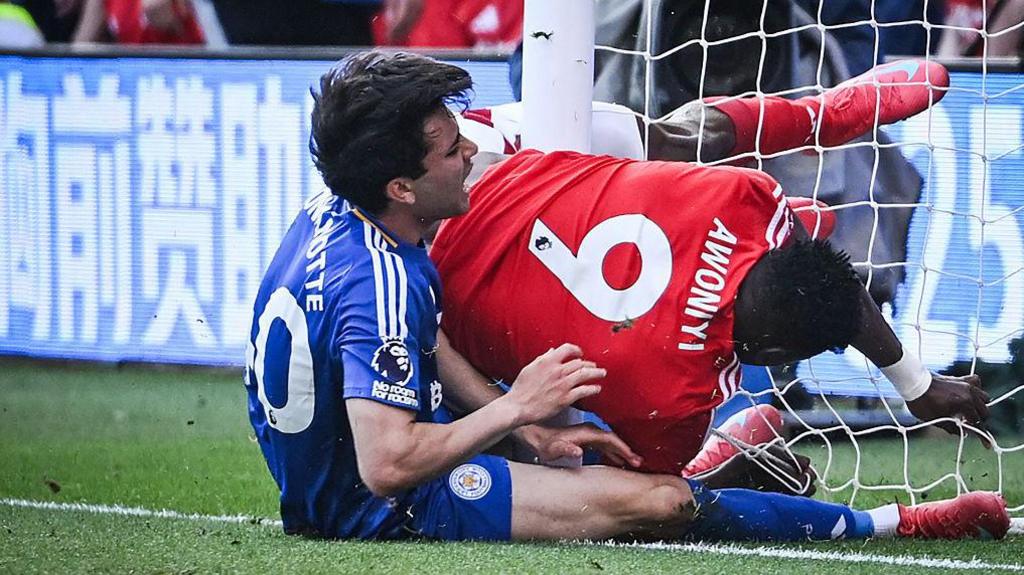The incident involving Nottingham Forest forward Taiwo Awoniyi has ignited a significant discussion regarding the offside law within professional football. Awoniyi, 27, was critically injured during a recent match against Leicester City, where he collided violently with a post while attempting to score. This unfortunate event has called into question the safety implications of the new offside rule, particularly concerning the practice of delaying the linesman’s flag.
Awoniyi was rushed into an induced coma after suffering a ruptured intestine as a result of the collision, which occurred as he stretched for a cross delivered by teammate Anthony Elanga. Following the incident, medical personnel attended to Awoniyi for several minutes on the pitch before he was eventually taken to the hospital due to the worsening of his condition. Such severe injuries have led to frustrations within the club, with Forest’s owner, Evangelos Marinakis, expressing his dissatisfaction towards the medical team’s handling of the situation when he confronted manager Nuno Espirito Santo post-match.
Adding to the controversy, replays from the match revealed that Elanga was in an offside position during the build-up to the injury. The assistant referee decided to keep his flag down, adhering to the new protocol introduced by the International Football Association Board (IFAB) in 2020, which was designed to promote offensive play by allowing the game to continue if a potential goalscoring opportunity arises. Although intended to enhance excitement in matches, the incident involving Awoniyi has raised serious concerns about player safety and the consequences of delaying the flag.
In recent years, former Premier League officials, including Keith Hackett, have voiced their concerns regarding the risks associated with delaying an offside flag. Hackett emphasizes that the protocol places players in unnecessary danger as they may not be aware of the offside, leading to perilous situations like Awoniyi’s. Awoniyi’s injury marks a critical moment in this ongoing debate about the safety of players and the applicability of the offside rule.
Historically, other players have also suffered significant injuries related to the offside law. For instance, Wolves goalkeeper Rui Patricio was severely injured after a head collision with teammate Conor Coady during a match against Liverpool, further highlighting the need for critical assessment of the current protocols. Following these incidents, professionals like Manchester City captain Rodri have called for modifications to the offside rule in order to better protect players from injuries resulting from the current system.
The IFAB, which convenes meetings twice annually, is responsible for discussing amendments to the football laws, including the controversial protocol regarding offside rulings. Former professional players and managers have expressed a strong desire for change, contending that the current system does not serve the best interests of the players’ safety. As this discourse continues, many stakeholders in football—players, managers, and fans alike—are calling for an urgent reassessment of the existing regulations to strike a balance between maintaining the game’s fluidity and ensuring player safety.
As football authorities navigate these pressing issues, experts suggest that instances of clear offside should warrant immediate action from assistant referees, thereby reducing the risk of injuries sustained through delayed flags. Amid a growing consensus on the need for reform, many are left to wonder whether the football authorities will take decisive action to adjust the offside law following Awoniyi’s serious injury, marking a significant chapter in the evolution of football regulations. This situation encapsulates the inherent conflict between the joy of attacking football and the sanctity of player safety, a balance that the sport must strive to achieve moving forward.



